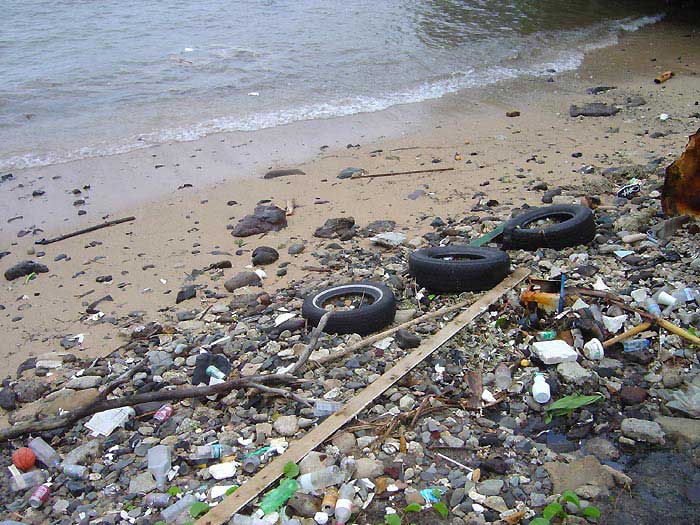Bacteria, Viruses, and Trash
Pollution Tutorial

Litter plays a significant role in damaging our marine environment. Discarded plastics, metals and other types of trash not only degrade the aesthetic beauty of an area, they can leach harmful chemicals into the environment. They can also contribute to disease transmission.
Bacteria and viruses are naturally present in the environment. Some pathogenic (disease-causing) microbes are associated with human or animal activities, however. Runoff from agricultural areas where manure is either generated or spread on fields can be a source of bacteria and viruses, some of which may be pathogenic, leading to outbreaks of disease. Urban areas can also be a source of pathogenic bacteria and viruses. As an example, outbreaks of cholera in urban areas have been blamed on inadequate sanitation.
The Norwalk virus has recently caused illness in a number of locations in the United States. This virus causes intestinal illness, and infects people when they come into contact with contaminated food or water. Eating raw shellfish contaminated with the virus is another way people contract this illness. Nonpoint source runoff from urban areas, or discharges from improperly maintained sanitary systems on boats, are also sources of the virus.
Discarded trash can become a component of nonpoint source pollution runoff. Plastics, metals and other types of trash often harm animals and plants. Plastics and metals degrade very slowly over time and can leach harmful chemicals into the environment. These materials can also contribute to the transmission of disease. In addition, trash simply degrades the beauty of an area.
Pollution Lessons
- Welcome
- A Brief History of Pollution
- Point Source
- Nonpoint Source
- Urban and Suburban Areas
- Agricultural Operations
- Atmospheric Inputs
- Forestry and Mining Operations
- Marinas and Boating Activities
- Nutrients
- Suspended Sediments
- Pesticides and Toxic Chemicals
- Bacteria, Viruses, and Trash
- Research, Monitoring, and Assessment
- Controlling Nonpoint Source Pollution
- What You Can Do
- References
- Roadmap to Resouces
- Subject Review (PDF)
Categories of Pollution
Pollutants from Nonpoint Sources
